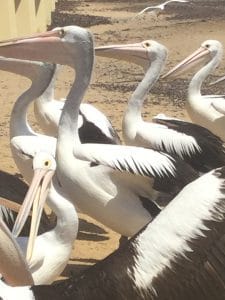

Extending to You a Heartfelt Welcome from Our Canadian Home
At the heart of the Trident Mediation, Counselling, and Support Foundation (TMCSF), founded in 1998, is a commitment to providing holistic services aimed at fostering personal and collective growth through mediation, counselling, and support. Over the years, our work has expanded from the provincial level to a national platform. In 2017, we established the Trident Mediation, Counselling, Arts, and Support Foundation (TMCASF) to incorporate artistic expression into our healing and development initiatives.

Mediation Impact
Mediation involves a broad framework, from helping people in managing personal conflicts to contributing to the interpretation of law or the formulation and operation of policy. By assisting people navigate and manage disputes in respectful ways, mediation potentially enhances relationships, and facilitates more harmonious environments, such as, in neighbourhoods, workplaces, the environment, and special-interest groups.
Individualized Supports
Are you seeking customized approaches to personal and interpersonal development?
This website provides a range of information and general resources and support services to help you navigate various challenges, from emotional distress to relationships conflicts. Mediation, counselling, supports, and expression are powerful tools to facilitate physical, cognitive, and social healing.

Who Are We?
We are non-government organizations offering and confidential services to Canadians to help lessen problems in living. Counsellors, mediators, supporters, and merging artists are brought together to focus on understanding the connections between personal challenges and realities, as and political troubles and issues. We are committed to holistic health and healing through mediation, counselling, arts, and various support services. Illustrative examples of counselling include individual and couples counselling, family counselling, and cognitive behavioural therapy.
Talking About Human Rights
We are committed to assisting people who welcome personal and social development, facilitating human rights, including for those with growth challenges. We provide a supportive environment that encourages belonging, originality, through personalized mediation, counselling, the arts, and other supports. Our approach is rooted in reciprocity, acceptance, heart-based connection, healing, and learning.

We value accessibility and affordability, ensuring that our services are accessible to a broader audience. Thus, everyone has an opportunity to find the support they need with the conveniences that home settings can bring.
Considering Problems in Living
Whether you are struggling with anxiety, depression, relationship issues, or other life challenges we are here to listen, support, and guide you each step of the way. We assist individuals, families, small and medium-size businesses to navigate conflicts and enhance communication.

Who Do We Serve?
The existence of each person carries inherent worth and significance. For example, each individual is often entitled to the right to vote, freedom of movement, protection against arbitrary detention or search without due process, language rights, and access to education that aligns with their cultural background (Government of Canada, 2021). We provide mediation, counselling, the arts, and support to you optimizing personal and social esteem. Our services vary depending on your location in Canada.
About Gratitude
We appreciate that our work ranges across territories and treaty areas. We acknowledge the traditional Keepers of the Flame who are present with us today, and people who precede us, and are grateful for the planet and the bounty it can provide.

Welcome to Our Home Story and Initiating Engagement with Us
Optimize, for instance, your techniques for relaxation. During your initial pre-session, you can have the opportunity to share aspects of your story with us. We value privacy and confidentiality.
Setting Out On A Voyage of Discovery
Embarking on your journey with us is a straightforward process. You can begin by booking a complimentary pre-session. Our intake process recognizes your unique needs and situations from the outset. This process begins with an initial pre-session, which includes a discussion of your goals. This helps us explore the best course of action, whether that involves mediation, counselling, arts-based therapies, or other support services.
Help is at hand!
When you need to slow your thoughts down, begin by controlling your breathing, giving yourself a moment to pause, and notice your environment before, during, or after tensions have arisen.

Reaching Out Across Canada and Beyond
When you get in touch with us, you have the chance to talk about your specific needs and preferences. We tailor our services to best fit your requirements and contexts. You can be guided to identify the appropriate services. You could consider what you hope to accomplish, your expectations for the process, and the desired outcome. It is also important to anticipate any potential obstacles and to work out ways to lessen these. You can determine whether you need impartial mediation or compassionate counselling services.
FROM PERSONAL TO SOCIOPOLITICAL RELATIONSHIPS
Canadians’ homes are in proximity to coastal areas, deserts, mountains, prairies, and rivers. Online or digital spaces serve as potential avenues for connection across time and space. Moreover, Canada has a long history and is part of the Commonwealth of Nations (The Commonwealth, 2025a).

Flexible Fee Structure
Often, you can access same-day sessions that are often covered by your insurers.
Operating Hours and How to Contact Us
We are open to you throughout the week to ensure accessibility to our wide range of services. Our goal is to provide flexible hours that fit into your schedule. Please feel free to visit or reach out to us during our operating hours.
You can schedule sessions with enough notice between:
| Time Zone | a.m. | p.m. |
| Central | 9.00 | 9.00 |
| Eastern | 10.00 | 10.00 |
| Mountain | 8.00 | 8.00 |
| Pacific | 7.00 | 7.00 |
You can contact us through our contact form and chat messages “24/7”.
Chat – Feel free to chat with us by clicking the blue button.
Contact Form – Simply fill out our contact form, and we would be in touch.

WELCOME HOME AND SELF-ASSESSMENT
We encourage you to conduct a self-assessment. This process is designed to help you reflect on personal or relationship challenges, allowing you to better prepare for mediation, counselling, or another support service we offer. A self-assessment may provide clarity, helping us tailor our approach to your specific needs.
Three Reflective Questions
You could think about the following sample questions:
- What are your goals for this expedition of self-exploration and development?
- What results do you anticipate achieving from these offerings?
- Additionally, what specific challenges or concerns are you currently facing?
As you address these questions, you can strengthen your understanding and motivation. This could enable you to effectively participate in mediation, counselling, or support services with a meaningful direction. Sometimes you may be lost for words.

How You Can Benefit
Mediation, counselling, the arts, and supports, may have life-saving life-saving potential. These approaches are incredibly powerful tools, particularly when it comes to holistic health and healing. Each of these areas offers a unique way to help people navigate through challenges, for instance, emotional, psychological, social, and ritualistic.
Facilitating Understanding
Mediation, for example, helps to manage conflicts and generate understanding between people, which may be crucial in limiting stress and strengthening optimal relationships. Counselling often offers a safe space for people to unpack their thoughts and feelings, providing revised perspectives and enhanced coping strategies.
There may be instances when you find it challenging to articulate your thoughts. Metaphors and analogies are powerful tools to understanding and present complex concepts, particularly in the context of the vast and ever-evolving Internet. The use of metaphors becomes especially useful when dealing with abstract ideas like approaches to data collection, information storage, and the meaning of human experiences.
Healing Opportunities
The arts, too, unlock a profound source of healing. They become an outlet to process pain, joy, or confusion—often helping individuals to process emotions in ways words alone might not. Photography, music, and writing are a means for personal expression, creating a bridge to connect with others.
Self and Social Transformation
Participate in mediation, counselling and support sessions from the convenience of your home. Sessions can be conducted over the telephone or via video call. Engage with us to address health challenges and facilitate self-growth. We support individuals, couples and organizations to optimize their relationships and overcome conflicts.
There are holistic benefits to each service, such as conflict management, including mediation, emotional support through counselling, and creative expression.

Just a heads-up, there are a few things to keep in mind:
We are not able to offer immediate crisis support.
We really value your privacy and cannot guarantee this.
Caveats
You could think about the process of sharing private and confidential information on the Internet. You are wise to consider the limitations of privacy on the Internet. These inquiries present opportunities to enhance both your comprehension and drive. This, in turn, allows you to meaningfully engage in mediation, counselling, the arts, and supports.
Alright, let us dive in!
This is your opportunity to learn, for instance, some easy-to-use relaxation techniques that can help you chill out and boost your cognitive and emotional health. Our awesome staff are ready to walk you through personal or social hurdles you might be facing, offering support and pragmatic solutions. Remember our objectives, emphasize supporting you from the very first interaction. You have the option to reach out to us “24/7”, to schedule an initial 30-minute, which is often complimentary. We encourage discovery calls. We provide you with the dignity of choice in service options.

ASSESSING ARTIFICIAL INTELLIGENCE AND COUNSELLING
This blog introduces you to aspects of Artificial Intelligence’s present, past, and possible future. The present is an ongoing process. AI and counselling are part of the present, and AI has become ubiquitous. AI’s applications, including in counselling, are varied, and some key features can be shared across different platforms. AI is a means to guide decision-making.
Often technological aids are digitally integrated and susceptible to cyberthreats (Clark, 2017). As ports, lighthouses, and shipping operations increasingly depend on automation and electronic systems, they may become targets for cyberattacks. A successful breach could severely hinder access to critical technologies and disrupt global shipping, leading to significant economic and safety repercussions. In their interactions with people counsellors often take into account, for instance, the psychological, legal, social, physical, spiritual, and financial factors that affect human well-being. Currently, there is not universal human access to either AI or counselling. However, they are part of human life!

ASSISTING AND EXPLORING ASPECTS OF MARITIME LIFE
In this blog post, materials are presented about the maritime sector and content ranges from the Pacific to the Arctic Oceans. Factors ranging from climate change to geopolitical tensions are provided. Additionally, trade, defence, and security are included, and a call is made to optimize a family of nations while upholding human, including workers’ rights. Heavy tariffs proved ineffective in Australia during the 1970s and ultimately increased household costs.

BACKING ONLINE AND TELEPHONE MEDIATION
We offer tools for conflict management in relationships through online and telephone mediation. This can help ease tensions and improve social connections.

BUILDING RESILIENCE
Supporting individuals, couples, and partnerships to build emotional resilience may enhance their ability to navigate stress, overcome challenges, and strengthen relationship bonds.

COMPREHENDING COUNSELLING AND THE OCEANS
Counselling and the oceans are interconnected in ways that can support people and the planet in building both personal social well-being. This relationship may play an instrumental role in facilitating personal growth and transformation, while promoting positive biological, psychological, and social development.

CONSIDERING WORK-STRESS REDUCTION
Fifteen factors contributing to work-stress are identified. This type of stress has been associated with errors, accidents, and oversights. Additionally, nine strategies for reducing human distress are presented.

DISCOVERING COUNSELLING AND TRAVEL
Integrating travel experiences with counselling can offer unique retreats for reflection, healing, and personal growth, while observing new environments.

ENGAGING IN RELATIONSHIPS COUNSELLING
Relationships counselling could be crucial for improving communication, managing conflicts, and fostering long-term relationship health. This could serve as a fundamental emphasis of counselling and support services; as they set out to function as a guiding light in chaotic circumstances.

EXPLORING ONLINE DISPUTE MANAGEMENT
Online tools for dispute resolution are methods for people to address conflicts in a semi-structured manner without being physically present.

GAINING INSIGHT INTO TELEHEALTH SERVICES
Offering telehealth services expands access to mental health support, making it easier for people to receive assistance, especially in remote areas like the coast or for those with busy schedules.

IMPLEMENTING VARIOUS HEALING TECHNIQUES
Healing techniques have the potential to integrate elements of science, art, and emotion, utilizing interlocking perspectives from various fields to facilitate home environments. Key orientations are presented here.

OPTIMIZING FOUNDATIONAL HUMAN RIGHTS
Ensuring that people understand their rights within individual relationships, families, and territories can empower individuals to make informed decisions and access necessary support, including relaxation optimization.

PARTICIPATING IN ADULT EDUCATION AND TRAINING
Providing educational opportunities to adults, such as conflict management and management intelligence training, may strengthen or lead to resilient, healthy relationships with people and planet.

This image metaphorically takes you to Port Douglas, in Queensland, Australia. From this location, you can enjoy captivating, and perhaps even life long memories, of white-sandy beaches, the Great Barrier Reef, and the Daintree Rainforest (Tourism and Events Queensland, n.d.). These renowned places could be peaceful and healing getaways!
REFLECTING ON THE AGING PROCESS
Addressing how aging impacts relationships, personal identity, and social dynamics offers valuable insights for individuals, couples, and families, particularly in navigating life transitions; including opportunities and threats.

REGARDING THE PLAGUE
The plague is attributable to the Yersinia pestis bacteripestis is present in regions such as the eastern Democratic Republic of the Congo, the northwestern part of Uganda, Madagascar, and the southwestern United States.
Plague manifests in various forms, including bubonic, pneumonic, and septicemic. Untreated, the plague can be fatal. It has a long history, predating at least to the Roman era and maritime travel.

SUPPORTING WEDDINGS, COMMITMENTS, AND PREMARITAL COUNSELLING
Offering premarital counselling and commitment planning may support couples and partnerships to start their journey with conflict management skills, leading to stronger marriages. How about a wedding on a ship or at a port? When you are there, pause and appreciate the hardworking maritime folks who keep grocery shelves stocked, including for your big day!

THINKING ABOUT HUMAN FLOURISHING
Encouraging human flourishing in relationships involves helping individuals, couples, partnerships, and families discover what makes them thrive emotionally, cognitively, and spiritually.

UTILISING OUTREACH SUPPORT SERVICES
Expanding outreach services can provide crucial support for people, particularly those facing relationship challenges or access barriers to counselling. A holistic approach to human conditions that emphasizes accessibility, growth, and well-being may be beneficial.
References
A
Australian Government (2017). Lighthouses.
https://www.amsa.gov.au/safety-navigation/navigation-systems/lighthouses
C
Clark, B.G. (2017), Commercial Maritime Cyber Security Risk and Vulnerability: What We Did Not Know, We Did Not Know. In J. Direnzo, N. K. Drumhiller & F. S. Roberts (eds.) Issues in maritime cyber security 129, 181. Westphalia Press.
Collison, G., Elbaum, B., Haavind, S. & Tinker, R. (2000). Facilitating Online Learning. Effective Strategies for Moderators. Atwood Publishing.
https://eric.ed.gov/?id=ED448684
The Commonwealth (2025a). About Us
https://thecommonwealth.org/about-us
The Commonwealth (2025b). ‘Together We Thrive’ announced as the theme for Commonwealth Day 2025. https://thecommonwealth.org/news/cd2025/together-we-thrive-announced-theme-commonwealth-day-2025?utm_source=newsletter&utm_medium=email&utm_campaign=commonwealthmatters_february2025
G
Ginsberg, Rodriguez, & Weingast, (n.d.) The Functions of Constitutional Monarchy: Why Kings and Queens Survive in a World of Republics. New York University.
https://www.law.nyu.edu/sites/default/files/Constitutional%20Monarchy%20as%20Equilibrium.pdf
Government of Canada (2021). The rights and freedoms the Charter protects.
https://www.justice.gc.ca/eng/csj-sjc/rfc-dlc/ccrf-ccdl/rfcp-cdlp.html#s2
Government of Canada (2024). Lighthouses in Canada.
https://www.dfo-mpo.gc.ca/otw-am/lighthouses-phares/canada-eng.html
T
Tourism and Events Queensland (n.d.). 30 Things to do in Port Douglas and the Daintree. Government of Queensland.
https://www.queensland.com/au/en/places-to-see/destinations/cairns-and-great-barrier-reef/things-to-do-port-douglas

